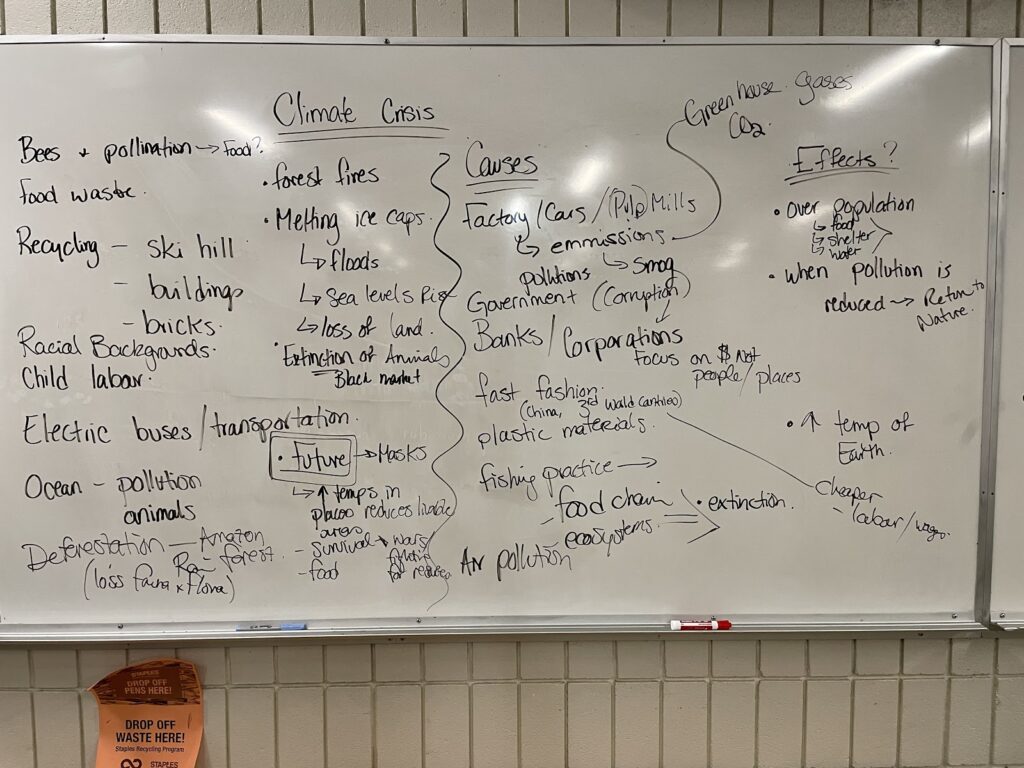Serena’s project focused on the climate crisis- its causes, what students know about it, and where to start from. The goal was to have students make personal commitments to decisions rooted in sustainability in purchasing products, food, clothing, and technology. Students thought critically about their personal consumption of goods and the effects of these choices.
The driving questions for this project were:
- What can we all do, individually and collectively, to shift the current climate crisis towards a more sustainable future?
- What can you commit to doing regularly, starting today, to work to mitigate your personal contribution to the climate crisis?

Serena and her class began the unit by brainstorming what students already knew about the current climate crisis: its causes, who is more affected, why different countries have those levels of pollution, and the global impacts. Students discussed many different aspects of their understanding, showing interest in pursuing multiple inquiries that they had come up with. This inquiry brought to light many of their personal worries and concerns about their futures and how their individual behaviors could potentially affect what this world looks like. Ultimately this inquiry is framed by the unit and the understanding that the different spheres on earth are interconnected. The flexibility within the curriculum allows for this inquiry for students to fully deep dive into the issues of climate crisis that really resonate with them individually.
It does take a certain amount of confidence of where you’re going and you need to be okay being led by the students- which, I think, teachers can be uncomfortable with. But it’s exciting and it’s really freeing in some ways.
Serena Reves
A challenge that Serena encountered during this project was the different starting points of understanding on this continuum. There needed to be some background laid as a class before branching into individual/group inquiries.
In an online learning environment, a tool where students could post their brainstorm ideas about the topic in real time while learning from one another, such as Padlet, would be imperative for sharing. Online discussion forums could also facilitate further exploration and connections between the ideas.
